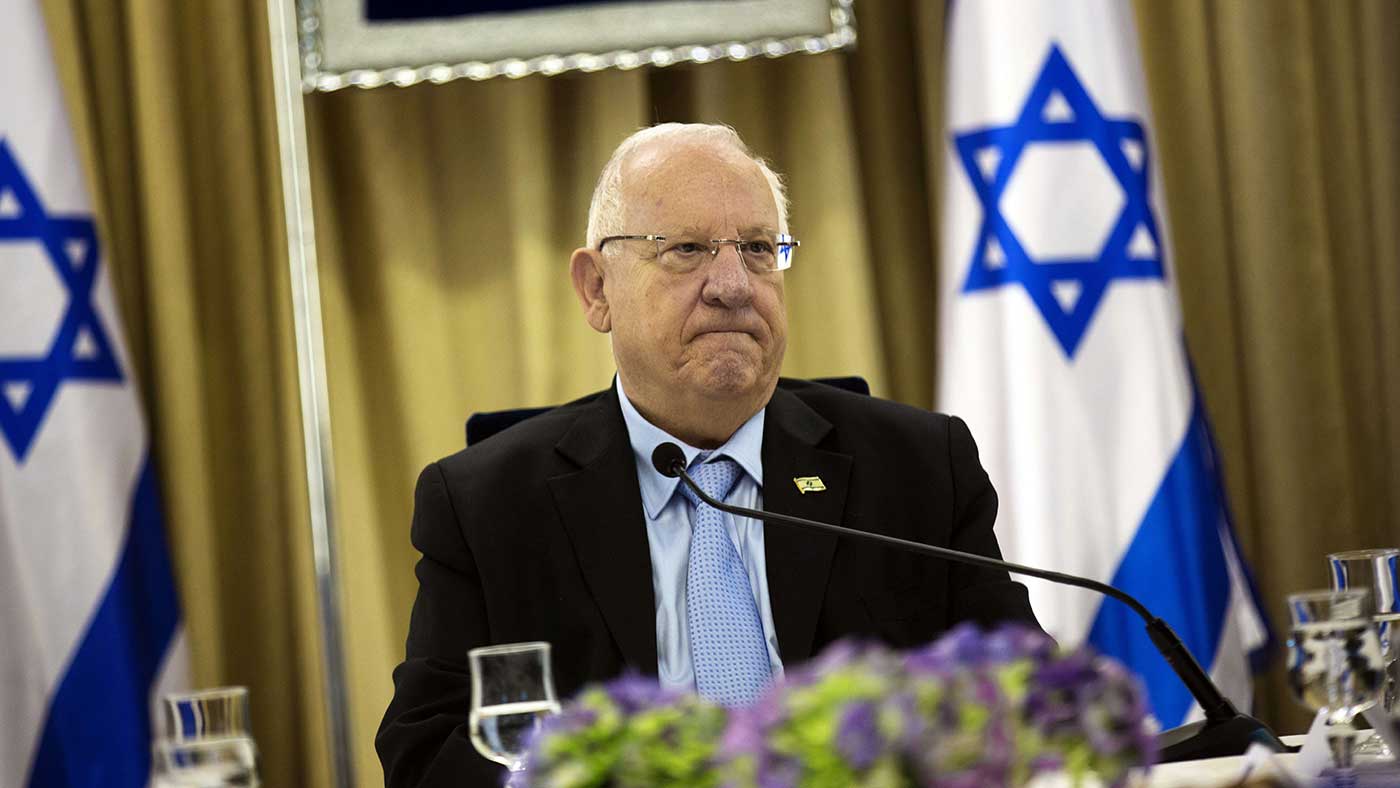Israeli President warns of ‘coup’ against democracy
Reuven Rivlin accuses Benjamin Netanyahu and allies of undermining the judiciary and media

A free daily email with the biggest news stories of the day – and the best features from TheWeek.com
You are now subscribed
Your newsletter sign-up was successful
Israeli President Reuven Rivlin has accused Prime Minister Benjamin Netanyahu’s government of trying to weaken the country’s supreme court and “silence the free media”.
In a “passionate defence” of the judicial system and the press, says the Times of Israel, Rivlin said “government attempts to undermine them amount to a ‘coup’ against the pillars of Israeli democracy”.
Speaking at the opening of the Knesset winter session, he said: “In this climate of delegitimisation, the atmosphere of ‘everything is political’ trickles down to the public, who receive the message that there is no more statesmanship, that there is only ruling and democracy. And in this climate, democracy means that the strong decides.”
The Week
Escape your echo chamber. Get the facts behind the news, plus analysis from multiple perspectives.

Sign up for The Week's Free Newsletters
From our morning news briefing to a weekly Good News Newsletter, get the best of The Week delivered directly to your inbox.
From our morning news briefing to a weekly Good News Newsletter, get the best of The Week delivered directly to your inbox.
“Changes to the supreme court have become a toxic political issue in a country where the separation between the judiciary and legislature is hotly contested, and where the political right has seen the court as an obstruction to its agenda,” says The Guardian.
Rivlin also took aim at criticism of the media from Netanyahu and others in the government following coverage of two criminal investigations into the Prime Minister’s alleged corruption.
“The Israeli media is not free from criticism,” Rivlin said. “It sometimes sins. However, it is one thing to work on repairing the media and to require it to be more diverse, professional and more practical and another to seek to control it.”
Netanyahu hit back, says Haaretz, “attacking media and opposition members who condemned his conduct”.
A free daily email with the biggest news stories of the day – and the best features from TheWeek.com
“When one side expresses their opinion it’s freedom of speech, and when the other side does it's considered incitement,” he said. “That’s the method. I have no respect for hypocrisy.”
-
 Political cartoons for February 21
Political cartoons for February 21Cartoons Saturday’s political cartoons include consequences, secrets, and more
-
 Crisis in Cuba: a ‘golden opportunity’ for Washington?
Crisis in Cuba: a ‘golden opportunity’ for Washington?Talking Point The Trump administration is applying the pressure, and with Latin America swinging to the right, Havana is becoming more ‘politically isolated’
-
 5 thoroughly redacted cartoons about Pam Bondi protecting predators
5 thoroughly redacted cartoons about Pam Bondi protecting predatorsCartoons Artists take on the real victim, types of protection, and more
-
 Epstein files topple law CEO, roil UK government
Epstein files topple law CEO, roil UK governmentSpeed Read Peter Mandelson, Britain’s former ambassador to the US, is caught up in the scandal
-
 Iran and US prepare to meet after skirmishes
Iran and US prepare to meet after skirmishesSpeed Read The incident comes amid heightened tensions in the Middle East
-
 Israel retrieves final hostage’s body from Gaza
Israel retrieves final hostage’s body from GazaSpeed Read The 24-year-old police officer was killed during the initial Hamas attack
-
 China’s Xi targets top general in growing purge
China’s Xi targets top general in growing purgeSpeed Read Zhang Youxia is being investigated over ‘grave violations’ of the law
-
 Panama and Canada are negotiating over a crucial copper mine
Panama and Canada are negotiating over a crucial copper mineIn the Spotlight Panama is set to make a final decision on the mine this summer
-
 Why Greenland’s natural resources are nearly impossible to mine
Why Greenland’s natural resources are nearly impossible to mineThe Explainer The country’s natural landscape makes the task extremely difficult
-
 Iran cuts internet as protests escalate
Iran cuts internet as protests escalateSpeed Reada Government buildings across the country have been set on fire
-
 US nabs ‘shadow’ tanker claimed by Russia
US nabs ‘shadow’ tanker claimed by RussiaSpeed Read The ship was one of two vessels seized by the US military